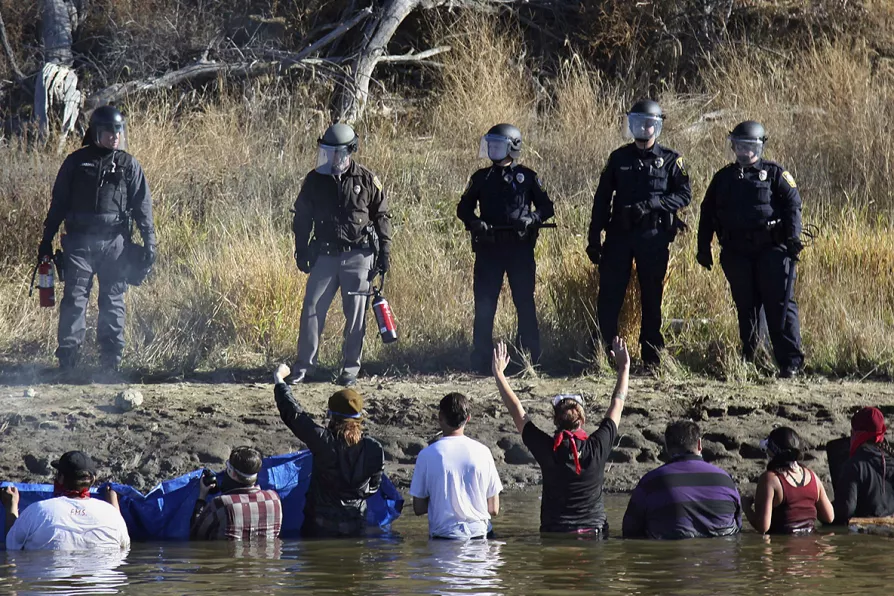Greenpeace ordered to pay oil company hundreds of millions in damages

 Protestors demonstrating against the expansion of the Dakota Access Pipeline wade in cold creek waters confronting local police, near Cannon Ball, North Dakota, November 2, 2016
Protestors demonstrating against the expansion of the Dakota Access Pipeline wade in cold creek waters confronting local police, near Cannon Ball, North Dakota, November 2, 2016
ENVIRONMENTAL group Greenpeace International was ordered to pay more than $660 million (£509m) in damages to a pipeline company by a US court on Wednesday.
The claim, by Dallas-based Energy Transfer and subsidiary Dakota Access, relates to protests against construction of an oil pipeline in North Dakota.
The company accused the Netherlands-based campaigners, Greenpeace USA and funding arm Greenpeace Fund Incorporated of defamation, trespass, nuisance, civil conspiracy and other acts.
Similar stories











![JSO supporters outside the Court of Appeal, January 30, 2025 [Pic: Jamie Lowe]]( https://msd11.gn.apc.org/sites/default/files/styles/low_resolution/public/2025-05/IMAGE_JSO16Appeal_Credit_Jamie_Lowe_300125_013.JPG.webp?itok=G4IRH8bG)

